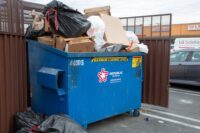EPA Issues Guidance for Lithium-Ion Battery Waste
On May 24, 2023, the EPA issued guidance for correctly applying hazardous waste and recycling regulations in the disposal of lithium-ion batteries. These types of batteries are used in cars, electronics, lawnmowers, e-scooters, electric bicycles, and many other devices, and usage of these types of batteries continues to increase. “The growth of the circular economy […]










